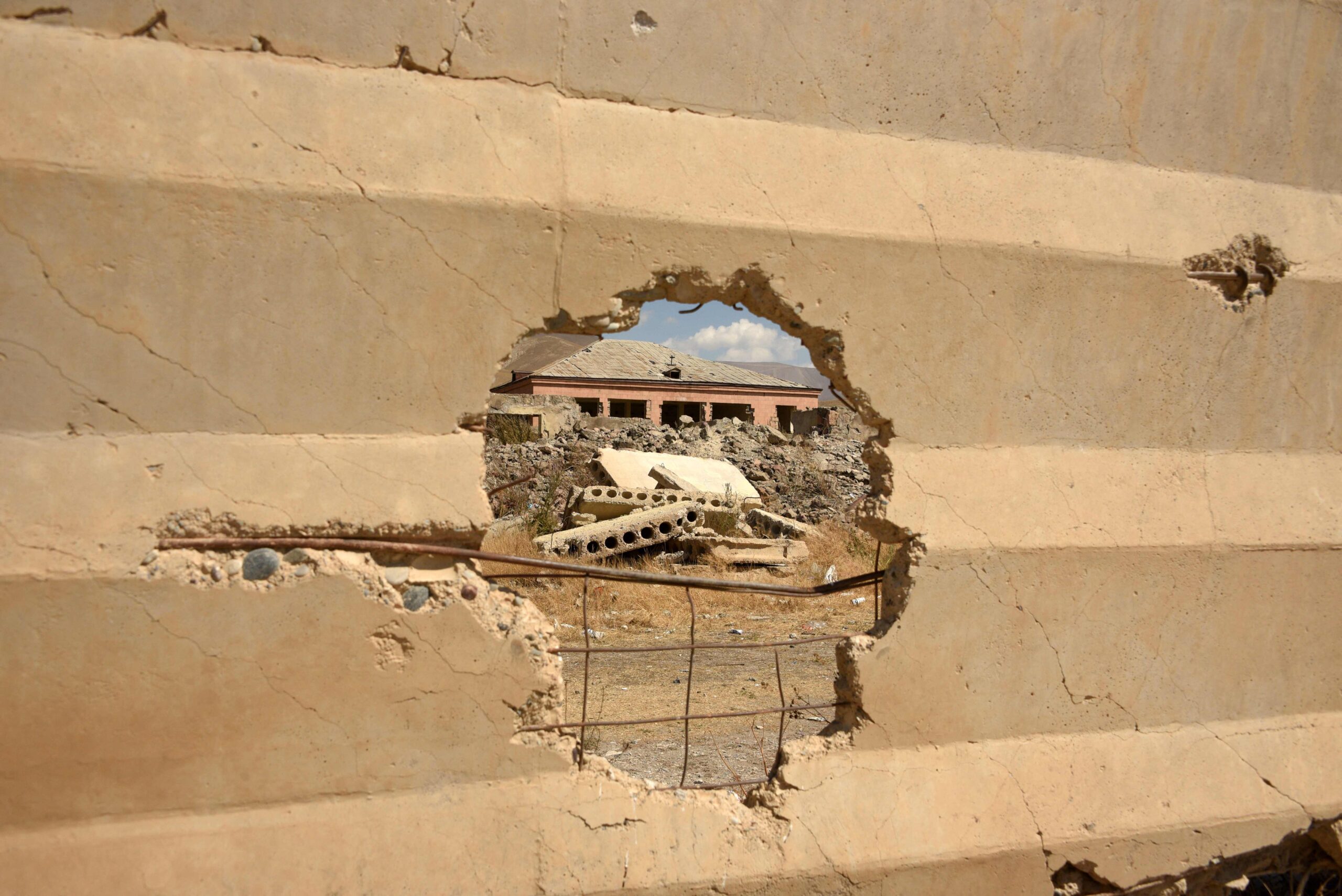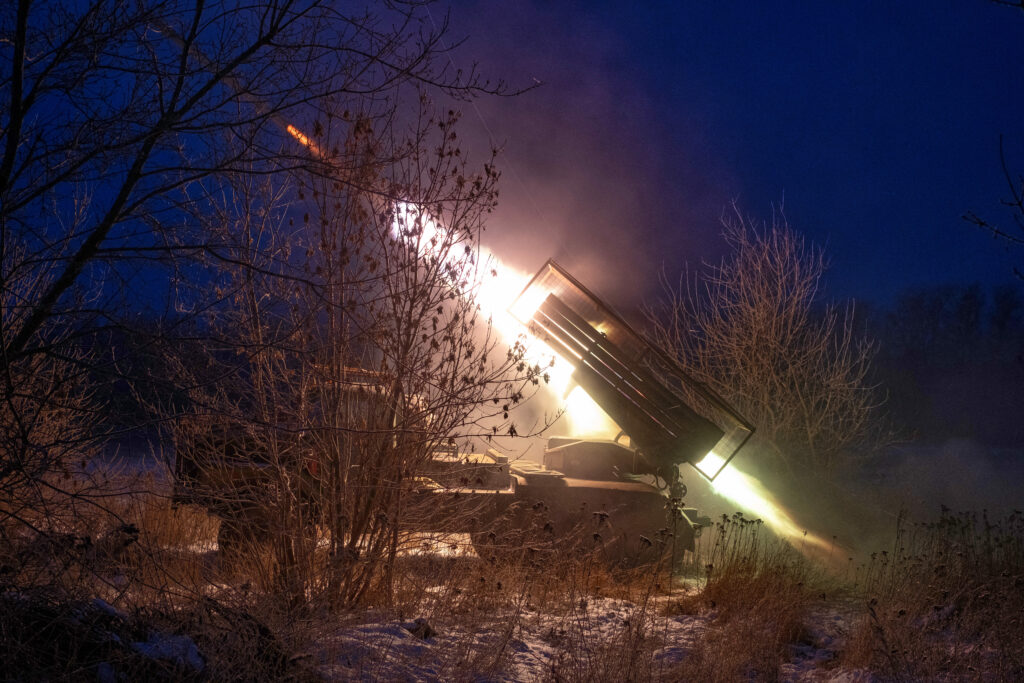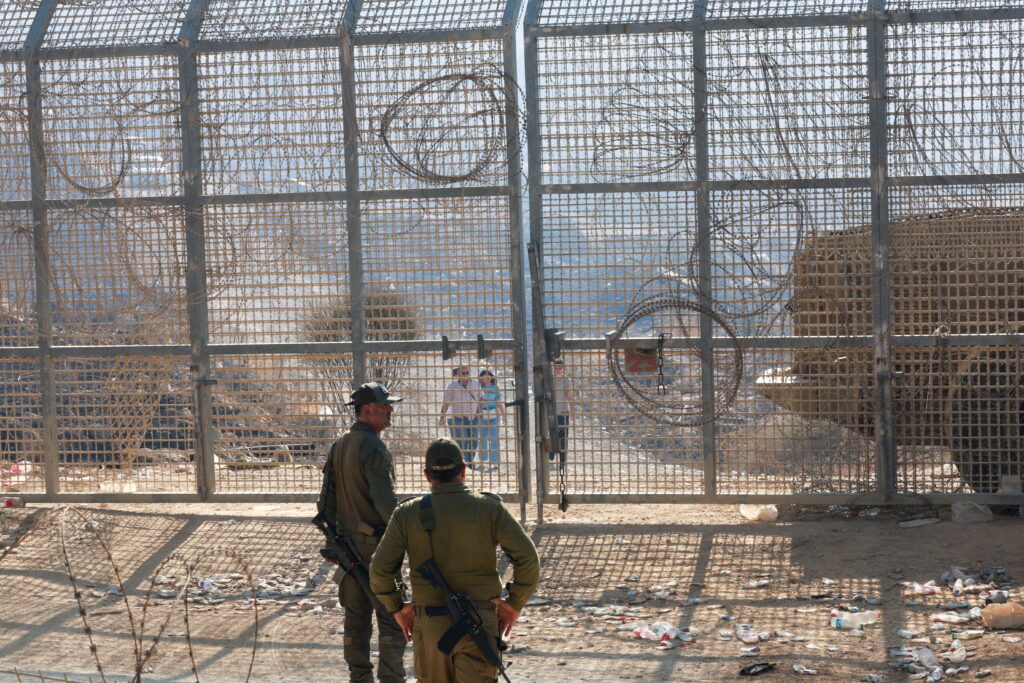Just before the beginning of last year, some processes in the world were still not subordinated to the logic of confrontation between Russia and the West. One such process went back to the early 1990s, and another one was rooted in the early 2000s, a time when Moscow, Washington and Brussels had a relative degree of understanding as well as a desire for cooperation. Of course, the 2014 events in Crimea and Donbass shattered this idyllic picture, but Moscow’s voice continued to be heard anyway when it comes to the resolution of the conflict between Armenia and Azerbaijan, as well as the situation in Afghanistan.
In this article, I will not dwell on the situation in Afghanistan. Suffice it to say that throughout 2021 the «extended troika» (Russia, USA, China and Pakistan) were wondering how to prevent the Taliban (a movement banned in the Russian Federation) from quickly coming to power. And when this happened, the four countries met again to urge the Taliban to sever ties with other groups. However, it was clear at the time that only non-Western players who were not engaged in the twenty-year war could exert relative influence in Afghanistan, and those were Russia, China and Pakistan. The United States would remain out of the picture, deprived of a forceful resource on the ground (although it did manage to destroy the co‑organiser of the 11 September attacks by drone after the withdrawal of its troops), but, most importantly, the USA did not enjoy the confidence among the other side of the negotiations.
A similar situation happened with the Karabakh conflict. The resolution was being dealt with by the OSCE Minsk Group, a familiar name in Ukraine.
When it comes to Armenia and Azerbaijan, they have complicated relations with Russia and the West. Indeed, formally speaking, Armenia is a member of the Collective Security Treaty Organisation (CSTO) and the Eurasian Economic Union (EAEU) while Azerbaijan is not, which is why Moscow should theoretically take the side of its ally. And yet this is not the case. What comes into play is Ilham Aliyev’s past (his education in the MGIMO, the famous school of international relations in Moscow’s) and close economic ties with Russia, and simply an unwillingness to become enemies with a neighbour in this very difficult region. After 2008, Azerbaijan thoroughly studied Georgia’s experience and decided not to bring relations with Moscow to a similar level.
Being far from Western democratic standards, Azerbaijan is regularly criticised by the European Union and the United States. And yet the hands of the West are tied. The reason is that Azerbaijan is one of the very few gas suppliers that can help Europe to reduce its dependence on Gazprom at least to some extent, even if not completely. The TAP pipeline brings Azerbaijan’s natural gas to the Adriatic coast of Italy, and the volume of supplies through this pipeline is going to double.
Armenia also has good relations with the West: in 2021 Armenia-EU Comprehensive and Enhanced Partnership Agreement or CEPA came into force. Armenia has been successfully participating in the Eastern Partnership programme. Armenia is particularly close to European rivals of Turkey: France, Greece and Cyprus. All this results in a concoction that seems rather bizarre nowadays: the country feels equally comfortable with Sputnik and Radio Liberty, with radically pro-Russian and pro-Western players being active in the political arena (the latter accusing Russia of aggression against Ukraine). Moreover, when Armenia asks «Whom do we join?», this question is often not understood as «Who is right?» but «Which friendship will turn out more useful?» For example, some pro-Western activists argue that if Armenia were not a CSTO member, Europe would unanimously side with Yerevan to protect the young democracy from «Aliyev’s dictatorship.» However, these speculations belong to the realm of fantasies, while in reality Armenia simply has no one else but Russia to rely on heavily.
Another perspective is also sometimes mentioned, namely that if Yerevan recognises Crimea and the Donetsk and Luhansk People’s Republics, and if it deports all the opposition activists back to Russia without regret, Putin will repay with gratitude and will protect Karabakh from Azerbaijan. However, this does not look like a credible plan, either.
Going back to the OSCE Minsk Group, which is still co-chaired by Russia, France and the USA, President Aliyev made it clear after the end of the 2020 war that since negotiations in this format are futile, the participants should retire. Strangely enough, Moscow did not immediately support this idea, apparently believing that peace would be stronger if guaranteed by several global players in parallel.
However, just one year later, after Russian troops entered Ukraine, the Minsk Group simply disintegrated because American and Russian diplomats can no longer sit at the same table and carry out discussions, even unrelated to the global confrontation.
The Peace of Brussels
Although Moscow is considered to be the author of the 9 November 2020 agreement which ended the war in Karabakh, and only Russian peacekeepers are present in the region, this factor lost its weight on 24 February 2022. It is beyond doubt that Russia is the country that provides security on the Baku- Nakhichevan road which runs through Armenia, as this is laid down in the document. However, there are other issues, such as the delimitation of the border, the release of prisoners and the preparation of a peace treaty, where the parties can either negotiate one on one or involve various mediators, not only Russia.
Ilham Aliyev and Nikol Pashinyan (as well as the foreign ministers Jeyhun Bayramov and Ararat Mirzoyan) have met both in Russia and Europe and this was not considered unusual. Moscow believed that Brussels had accepted its supporting role and would not have any higher aspirations. However, that turned out to be a mistake.
On the eve of the last meeting in Brussels (incidentally, this was already the third meeting between the two leaders in Brussels since the year beginning), Azerbaijan began talking seriously about a peace treaty to be signed within the next few months. Now, the foreign ministers must get down to «working out the texts» within the next few weeks. Azerbaijan believes that the foundation for the future document already exists and comprises five rules:
- mutual recognition of the other country’s sovereignty, territorial integrity and inviolability of borders;
- confirmation that the parties have no territorial claims;
- countries refraining from threatening each other;
- delimitation and demarcation of the border and the establishment of diplomatic relations;
- opening up transport routes and establishing cooperation in areas of mutual interest.
Armenia confirmed that it did not oppose these rules but would like to add one more principle rule (plus 5 organizational), regarding the guarantees of rights of Armenians who remain in Karabakh. Yet Baku was not satisfied with it, saying that since Karabakh is part of Azerbaijan, this is an internal issue and any discussion of the topic with another country is unacceptable.
However, the discussion of the peace treaty attracted far less attention than the sharp reaction of the Russian Foreign Ministry to the meeting. «The EU engagement in South Caucasus is driven by its geopolitical ambitions and, in our view, it has nothing to do with the real desire to support the normalisation of Armenian-Azerbaijani relations,» Maria Zakharova said and added, «I would even say that these look like pseudo-initiatives on the part of the Europeans. They seem more like an unscrupulous attempt to appropriate the laurels of mediation, without meaningful content. We do our work as mediators, and this effort brings concrete results and is duly appreciated by the parties.» However, Baku would clearly view Moscow’s self-esteem as exaggerated as it believes that Russian peacekeepers have not done their main task in the course of two years, i.e. they have not disarmed the army of the self-proclaimed Nagorno-Karabakh Republic (NKR): the army does not only continue to operate, but it also organises regular conscription.
On the other hand, Yerevan is satisfied with Moscow’s efforts, even if not fully. «Russia is the closest partner and strategic ally of the Republic of Armenia. Constant communication and reconciliation of positions are especially important in these difficult times,» said Nikol Pashinyan upon leaving Brussels, and he immediately went to the Eastern Economic Forum in Vladivostok. «You noted, and I also want to note the mission of Russian peacekeepers in Nagorno-Karabakh. Admittedly, this is certainly not an easy mission. We talked about it on multiple occasions, and we highly appreciate the activities of the Russian peacekeepers in Nagorno-Karabakh, in the Lachin corridor.»
At the same time, Yerevan is trying very hard to pretend that the OSCE Minsk Group is still active. In his conversation with Putin, Pashinyan recalled that Russia co-chairs the Group, while Ararat Mirzoyan also mentioned this fact in his conversation with Lavrov. Moreover, according to the Armenian government agency, the American co-chair of the Minsk Group, Philip Reeker, came to Yerevan on 8 September, although even the American embassy in Yerevan uses a different name, calling him the «Senior Advisor for Caucasus Negotiations.» Incidentally, Igor Khovaev, former co‑chairman of the Minsk Group for Russia and now special representative of the Russian Foreign Minister, arrived in Baku at the same time.
What exactly Putin said to Pashinyan in Vladivostok will hardly ever be known, as only their mutual opening addresses have been published. No appreciable breakthrough achieved through Moscow’s mediation is now expected. However, progress is quite possible on the Brussels front, especially that Nikol Pashinyan and Ilham Aliyev are going to meet again in the EU capital in November, and perhaps not in vain.
Regulating the different speeds
In the past, Russia and the West, the latter represented by the EU and the USA, acted as mediators between Armenia and Azerbaijan. Currently, as some admit with a smile, the opposite is happening: Armenia and Azerbaijan have suddenly become mediators between Russia and the West. Jokes aside, the settlement has split into two pairs: Moscow and Yerevan on the one hand, with Brussels and Baku on the other.
The common interest of Moscow and Yerevan is quite simple: to maintain the status quo for as long as possible. Armenia needs Stepanakert to be the centre of a tiny and unrecognised state, which will nevertheless remind Armenians of its past greatness (hence the futile attempts to revive non-existent formats). Russia, on the other hand, wants Russian military forces to remain on that small patch of land, thereby confirming its own presence in the region.
This does not mean, however, that Moscow would want the conflict between Armenia and Azerbaijan to last forever, but it would certainly be better off with a peace agreement signed in the Kremlin, and only after Russian border guards have demarcated the border (using Soviet military maps, of course) and established the movement of Armenian cargo through Azerbaijan, and vice versa.
Azerbaijan, on the contrary, considers the current state of affairs to be a misunderstanding, greatly affecting the country’s image and preventing it from talking about a complete victory in autumn 2020. After all, the Azerbaijan flag is still not hoisted over Khankendi (the name Baku uses for Stepanakert). There is no doubt that the Azerbaijan army could resolve this issue in a matter of days, especially now that it controls the town of Shusha and the entire Lachin district. However, this has been prevented by the Russian peacekeepers, whose mandate remains valid until the end of 2025. Moreover, in the early 2025, Baku should tell Moscow whether or not it extends the peacekeeping mission. Formally, the issue can be resolved unilaterally, but in reality it will, of course, be solved through bargaining.
If the situation on the ground does not change much over the remaining three years, and if a peace treaty is not signed, this will serve as a strong argument to prove that the conflict is not over and, consequently, peacekeepers are still needed. However, if Baku and Yerevan do sign a treaty, recognise each other and enter into a dialogue without mediators, it will be much more difficult to convince anyone that the Russian military has an important role to play. Baku would clearly like to see the latter scenario to unfold, and Brussels is quite a good ally in this regard.
Moscow has no formal reason to prohibit Armenia and Azerbaijan from signing the treaty in Brussels, although such a development would, of course, cast a blow to its image. In this way, the EU will wear the laurels of a peacemaker while Russia will get the hard job of guarding the transport corridors.
The only question that remains is whether or not Yerevan can be persuaded to do so. So far, it has resisted the idea, arguing that agreement on the key issue, i.e. the future of Karabakh, has not been reached. In theory, the signing of a peace treaty on Baku’s terms could once again shake the situation in Armenia, but Azerbaijan makes it clear that another aggravation of the situation is an alternative to peace, and it is far from certain that Russia will be able to intervene in time. «The problem is that some forces believe that Russia is too busy with the Ukrainian issue. This can be conveniently leveraged to destabilise the situation,» Pashinyan said in Vladivostok. Indeed, this is a well-founded concern. Russia’s actions in Ukraine have not given Baku a reason to reconsider its own relations with Moscow, but may well lead to policy adjustment towards more decisive steps.
Apparently, the escalation at the border on the night of September 12−13 should also be considered in the same logic. Here, as always, are two explanations — Armenian and Azeri. Baku claims that, wishing to delay the conclusion of a peace treaty and realizing the weakness of their diplomatic positions, the Armenians undertook a «provocation» by allegedly mining the territory on the line of demarcation. «As a result of the urgent measures taken by our units to immediately prevent these acts, a battle broke out,» the Azerbaijani Defense Ministry said. In parallel with this, allegedly, the Armenians began to strike with artillery, moreover, along the entire length of the border and even from the resort of Jermuk.
Yerevan, in turn, talks about large-scale aggression along the entire length of the border. At night, Pashinyan had to call Putin, Macron and US Secretary of State Blinken, as well as once again apply for help from the CSTO allies.
One way or another, a new outbreak of conflict makes it clear: as long as the border remains undelimited, the right of the strong acts on it, and it belongs to Azerbaijan. And Armenia, as a weaker side, can defend itself in only one way — by signing a peace treaty and recognizing the territorial integrity of Azerbaijan. And if Russia fails to offer something fundamentally new in the near future, it is very likely that Yerevan will agree to the conditions proposed by Baku and Brussels.










